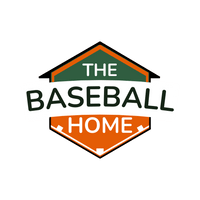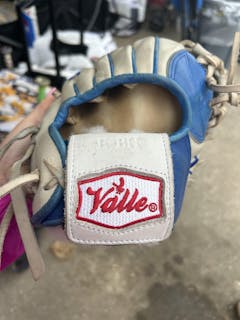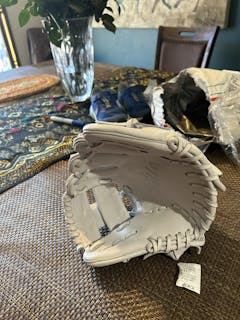Shipping in USA
The Baseball Home brings high-quality ball thrower machines that can provide consistent, efficient practice for players of all ages and skill levels. We offer a wide selection of pitching machines with features to fit every need and budget.
Read more
Overview of Ball Thrower Machines
Ball thrower machines, also known as pitching machines, are designed to automatically pitch balls to batters at various speeds, angles, and intervals. They provide a great way to get in hitting repetitions without needing a live pitcher. These machines are suitable for both baseball and softball, from little league to professional levels.
You can also browse baseball ball launcher selection at our store.
Different mechanisms are used to propel the ball, such as spinning wheels or arm-action motion. The speed, height, and pitch type (fastball, curveball, etc.) can be adjusted on most machines. Ball feeders are also common, holding dozens to hundreds of balls for continuous batting practice.
Ball Thrower Machine Types
The Baseball Home collection includes three main types of ball thrower machines:
Wheel Machines
Wheel machines use one, two, or three spinning wheels to launch the ball. By adjusting the wheel angles and speeds, various pitch types can be thrown, including fastballs, curveballs, and sliders at speeds up to 95 MPH. This versatility makes wheel machines a great option for teams and training facilities accommodating multiple skill levels. We also offer a slow pitch softball pitching machine product range.
Arm-Action Machines
Arm-action machines have a metal arm that mimics the overhand throwing motion of a real pitcher. This provides a more realistic visual cue and can help batters with timing. While typically limited to straight pitches, these machines are ideal for players wanting to practice against live-arm motion.
Soft Toss Machines
Soft toss machines are compact and designed for practicing hitting off a tee or soft toss. They lob the balls upward in a consistent arc, allowing batters to focus on swing mechanics. Being portable and easy to set up, soft toss machines are perfect for youth players or home use. Want a ground ball machine instead?
How to Choose a Ball Thrower Machine
When selecting a pitching machine, several key factors should be considered to ensure you choose the right equipment for your needs. Durability is paramount, as it directly impacts the longevity of your investment. Look for machines with robust warranties, as manufacturers typically stand behind products they expect to last. For younger players or those unsure of their long-term commitment to the sport, a less expensive but still reliable option might be more appropriate.
Portability is another crucial aspect, especially if you plan to use the machine in various locations. Some pitching machines can weigh up to 125 pounds, making transportation challenging. Consider models with wheel kits or those designed for easy mobility. The power source is also related to portability - while some machines require a 110-volt power outlet, others offer the flexibility of rechargeable battery packs, allowing for use in locations without electrical access.
The ball feeding mechanism is an important feature that affects how you'll use the machine. Funnel or spiral feed systems can hold 10-20 balls and fire them automatically, ideal for solo practice. Manual feed systems, where balls are loaded one at a time, are preferred by coaches who want to provide feedback between pitches. Consider which style aligns best with your training methods.
When it comes to functionality, more advanced pitching machines typically use one or two spinning wheels to propel the ball, offering greater precision and ease of use compared to spring-loaded or mechanical firing methods. These wheel-based machines can often simulate various pitch types, from fastballs to curveballs, enhancing the practice experience.
Additional factors to weigh include the machine's ball capacity, which can range from a few dozen to over 500 balls for extended practice sessions. Adjustability is also key - look for machines with variable speed controls and pitch type adjustments to accommodate different skill levels. Some advanced models even offer programmable pitch sequences or automatic feeders for more efficient practice sessions.
Lastly, consider your budget and the intended users' skill levels. While it's tempting to opt for the most feature-rich model, it's essential to balance cost with actual needs. By carefully evaluating these factors, you can select a pitching machine that will effectively support your training goals and provide lasting value.
At The Baseball Home, you'll find trusted brands like Heater Sports, Rawlings, and Louisville Slugger with options for every budget. With the right ball thrower machine, you can develop your hitting skills and train like the pros! Browse our collection today and step up to the plate with confidence.
FAQs
Q: What is the top speed of a ball thrower machine?
Ans: Ball thrower machine speeds vary by model, with some reaching up to 80-95 mph. Many machines offer adjustable speeds, typically starting around 10-30 mph for beginners and lower settings.
Q: Can ball thrower machines be used for both baseball and softball?
Ans: Yes, many ball thrower machines are designed for both baseball and softball practice. They can accommodate different ball sizes and allow you to adjust settings like speed and pitch type.
Q: Are ball thrower machines easy to transport?
Ans: Most ball thrower machines are designed to be portable and easy to transport, either separating into smaller parts or featuring a compact, lightweight design. This allows for convenient use at different practice locations.
Q: What power options are available for ball thrower machines?
Ans: Ball thrower machines are typically powered either by AC (outlet power), rechargeable batteries, or both. Battery-powered machines offer more portability, while AC power provides continuous operation without recharging.
Q: Do ball thrower machines require assembly?
Ans: Assembly requirements vary by model. Some ball thrower machines come fully assembled, while others, particularly those with separate ball feeders, may require some easy assembly using included instructions and tools.
Q: What is the ball capacity of a ball thrower machine?
Ans: Ball capacity varies between ball thrower machine models, ranging from 12-24 balls for small machines to 300+ balls for larger professional models. Higher capacity allows for longer practice sessions.
Q: Can ball thrower machines shoot different types of pitches?
Ans: Many ball thrower machines, especially wheel-based models, can simulate different pitches like fastballs, curveballs, and sliders by adjusting the wheel speeds and angles. Some machines offer more advanced pitch selection than others.
Q: Are ball thrower machines safe to use?
Ans: When used properly and with adult supervision, ball thrower machines are safe. Most machines include safety features like ball feeders, automatic shutoffs, and protective screens. Following all safety guidelines is important.
Q: What is the warranty on a ball thrower machine?
Ans: Warranty terms differ by manufacturer and model, but most ball thrower machines come with at least a 1-year warranty covering defects and malfunctions. Some high-end machines may offer extended warranties up to 3-5 years.
Q: How much do ball thrower machines cost?
Ans: Ball thrower machine prices range from around $150 for basic softball/baseball models to $3000+ for professional-grade machines. Mid-range models are typically $500-$1500. Factors like brand, features, and build quality influence price.










































































































